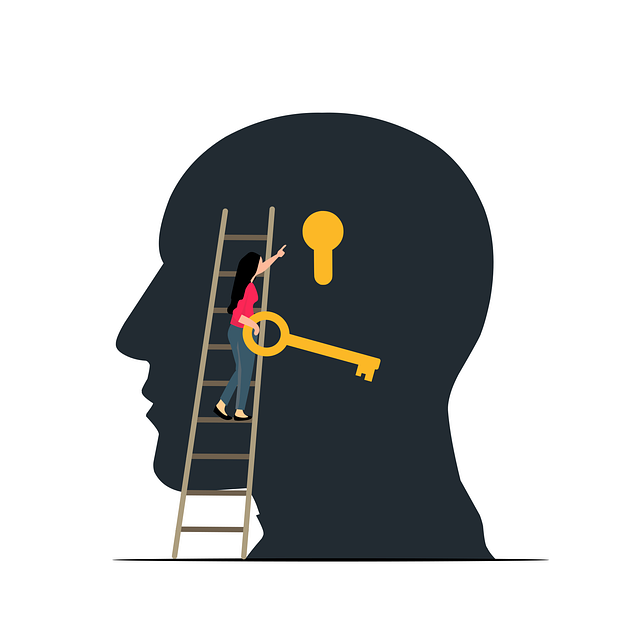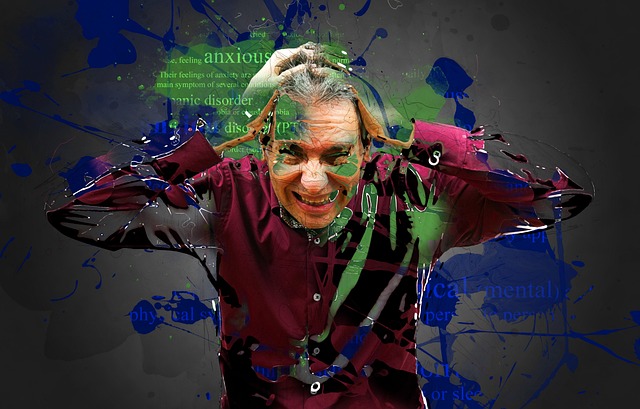Centennial Hypnosis Therapy emerges as a leading approach to cultivate emotional intelligence (EI), transforming from a niche topic to an essential aspect of personal and professional development. By focusing on self-awareness, guided meditation, and active listening, this therapy enhances emotional regulation, builds empathy, and refines social skills. These improvements are demonstrably beneficial across various domains, from healthcare and mental health policy analysis to workplace dynamics, contributing to better patient care, positive organizational cultures, and overall well-being.
Emotional intelligence (EI) is a game-changer in personal and professional growth, and its significance has been increasingly recognized over the past century. This article explores various facets of EI development, offering a comprehensive guide for those seeking to enhance their emotional agility. From the foundational role of self-awareness in Centennial Hypnosis Therapy to practical strategies for boosting empathy and social skills, we provide insights into navigating life’s challenges with greater emotional resilience. Discover how integrating EI into daily routines can revolutionize your interactions and overall well-being.
- Understanding Emotional Intelligence: The Centennial Perspective
- Unlocking the Power of Self-Awareness in Hypnosis Therapy
- Strategies for Enhancing Empathy and Social Skills
- Practical Applications: Integrating Emotional Intelligence into Daily Life
Understanding Emotional Intelligence: The Centennial Perspective

Emotional intelligence (EQ) has evolved from a mere buzzword to a recognized essential in personal and professional development over the past century. The concept has gained significant traction, especially with the advent of Centennial Hypnosis Therapy, which explores the mind-body connection for inner strength development. This therapeutic approach recognizes that emotions play a pivotal role in our overall well-being and decision-making processes.
Historically, EQ was considered a soft skill, but modern research highlights its profound impact on various aspects of life. In the context of healthcare, burnout prevention strategies for providers heavily rely on emotional intelligence, fostering resilience and effective patient care. The ability to recognize and manage emotions is no longer optional; it’s a cornerstone of successful practices. This shift in perspective underscores the importance of mental health awareness and the role EQ plays in navigating life’s challenges.
Unlocking the Power of Self-Awareness in Hypnosis Therapy

Self-awareness is a cornerstone of emotional intelligence, and hypnosis therapy offers a unique pathway to unlock its profound potential. This therapeutic approach enables individuals to delve into their subconscious minds, revealing hidden patterns and beliefs that often influence their emotions and behaviors. By accessing this inner realm, clients can gain valuable insights into their triggers, fears, and strengths, fostering a deeper understanding of themselves.
Centennial Hypnosis Therapy leverages the power of self-awareness in mental health policy analysis and advocacy, trauma support services, and crisis intervention guidance. Through guided meditation and relaxation techniques, individuals learn to observe their thoughts and feelings without judgment, leading to better emotional regulation. This heightened self-awareness can significantly contribute to personal growth, improved relationships, and enhanced overall well-being, making it an essential tool in the journey towards emotional intelligence development.
Strategies for Enhancing Empathy and Social Skills

Building empathy and honing social skills are essential components of emotional intelligence development, as highlighted by Centennial Hypnosis Therapy. These skills can be cultivated through various strategies tailored to enhance mental wellness and resilience. Engaging in active listening is a powerful tool; focusing on understanding others’ perspectives and emotions allows for deeper connections and improved communication. Practicing mindfulness meditation can also significantly boost empathy by increasing awareness of one’s own feelings and those of others, fostering a more compassionate mindset.
Centennial Hypnosis Therapy further emphasizes the importance of self-awareness in social interactions. Regularly reflecting on personal reactions and behaviors enables individuals to manage their emotions effectively and respond thoughtfully in social settings. Additionally, participating in mental health education programs designed to promote resilience building can provide valuable insights into emotional intelligence. These programs often include role-playing exercises, group discussions, and feedback sessions that facilitate the development of empathy and enhance social skills.
Practical Applications: Integrating Emotional Intelligence into Daily Life

Emotional intelligence (EI) isn’t just an academic concept; it has practical applications that can greatly enhance our daily lives. At Centennial Hypnosis Therapy, we emphasize the integration of EI as a foundational element for overall well-being. By cultivating self-awareness, individuals can better understand their emotions and respond to them in healthy, constructive ways. This skill is invaluable in managing stress, resolving conflicts, and fostering meaningful relationships.
Beyond personal growth, EI plays a pivotal role in various professional settings. Crisis intervention guidance, mental health education programs design, and self-esteem improvement initiatives all benefit from individuals with strong emotional intelligence. In the workplace, emotionally intelligent employees can navigate complex interpersonal dynamics, resolve conflicts, and contribute to a positive organizational culture. This translates into improved team collaboration, increased job satisfaction, and enhanced productivity.
Emotional intelligence, a cornerstone of human interaction, continues to be relevant in the 21st century. As highlighted through the lens of Centennial Hypnosis Therapy, understanding and cultivating emotional awareness can significantly enhance our personal and professional lives. By integrating strategies that foster self-awareness, empathy, and social skills, individuals can navigate complex relationships and challenges more effectively. This article has offered a comprehensive guide to building emotional intelligence, serving as a starting point for further exploration and growth.














